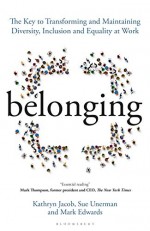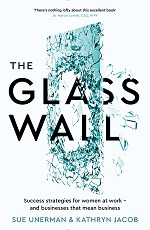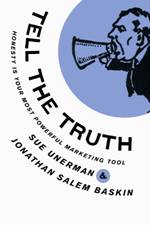 “His team would follow him anywhere, but only out of morbid curiosity” (Source: feedback review from a large US corporation)
“His team would follow him anywhere, but only out of morbid curiosity” (Source: feedback review from a large US corporation)
Feedback is crucial.
I always want more feedback on how I’m doing.
My ceo Josh Krichefski reminded his board recently to seek feedback frequently and act on it.
Feedback at work has evolved from a formal review of progress by your boss to the more rounded 360 as a norm where your boss, your team and your peers all have a say about how you’re doing.
You have to really listen to any feedback (which hopefully is usually more constructively than that quoted above (although clearly the feedback reviewer had got fairly desperate about getting their point across.))
Opinions differ on how frequently should you have a review. In some businesses teams score each other monthly on performance. Some keep the main review to an annual cycle and suggest quarterly kpi checks. There are clearly pros and cons to each. The first seems like it could be endless with many working hours a month taken up by the feedback process. The second only works if you have very trusted team members – there’s lots of room and time to hide inadequate performance if the annual review is the key performance measure.
Both of these feedback cultures are too slow and ponderous. They’re too formal. They’re too parent child.
Feedback should be every day, every meeting, every encounter.
Instead of parent child, teacher pupil, team leader to team member the feedback loop should be expert to expert. Continuous marginal improvements instead of weighty critiques.
Like a fabulously famous actor and director working with A-list actors on his movie set.
Sir Kenneth Branagh attended a charity showing at Rada of his new movie Murder on the Orient Express earlier this month and did a question and answer session. In attendance were many Rada students, one of whom asked: “I know you must be used to it by now, but how on earth do you direct yourself, and how do you approach directing such famous actors such as Dame Judi Dench and Jonny Depp?”
Branagh’s answer was interesting in two ways. First he talked about the fact that he went through a phase when he was crippled by nerves. Now, instead, he doesn’t consider himself nervous, he considers himself excited. Nervous makes you doubt everything, excited makes you step up.
Secondly he said that when you sit down to do a scene directing Johnny Depp it isn’t a one way process. Sure Branagh gives Depp notes (the actorly term for course correction) but in return and in the moment Depp critiques Branagh’s performance as well.
This is the feedback framework that we all need. A peer to peer note giving process in our daily working life. Here’s one thing you could do better, here’s one thing you could stop and here’s something that you got just right.
Informal continuous assessment to make sure that we all deliver a bit better today than we did yesterday, every day.





Be brave
Friday, November 24th, 2017So said, Gemma Greaves, ceo Marketing Society, as she introduced this year’s conference at the Science Museum.
In 2016 I praised the conference content but remarked about the lack of gender diversity on stage. As a result Gemma recruited me to her conference panel for this year.
Let’s get that elephant out of the room first of all, the gender balance this year was significantly better, and the first 5 to speak on stage were women.
The theme for this year was Brave. Dr Emma Barrett OBE dissected bravery giving 5 key tactics of a brave leader.
The extraordinary Raha Moharrack who is the first Saudi women ever to climb Everest gave us an insight into her motivation. Her dad said no to her when she asked him if she could climb a mountain.
That “no” made her more determined than ever to do it anyway.
“the word grew fangs and tore at my soul”.
Maya Angelou said “Bitterness is like cancer. It eats upon the host. But anger is like fire. It burns all clean.”
Turning anger into fuel is a great way for getting you places, including of course up a mountain.
Two outstanding marketing chiefs then brought us back to bravery in work. Syl Saller (Diageo) and Andrew Clarke (Mars) described how and when they’re brave.
Syl described the importance of owning the selling of a brave initiative – that you must convince your boss, your colleagues, your team and always yourself.
Andrew explained the need, especially in times of retrenchment, to share, to trust, to explore and to let go of control.
Dr Barrett used extremes of physical danger to illustrate brave techniques. Moharrack said that despite climbing mountains (in what looked like atrocious conditions), her most scary moment was when she sent an email to her father appealing to him to change his mind and give his permission and his blessing to her first adventure.
Fear of her father trumped fear of falling.
Fear of disapproval can paralyse people in the workplace. We want cast iron substantiation when we challenge, when those who we are fearful of challenging may simply want to hear a different point of view and an alternative hypothesis.
Let’s remember that even if we don’t win the argument we won’t fall off the mountain.
2018 is the time to be brave.
Posted in MediaComment | No Comments »